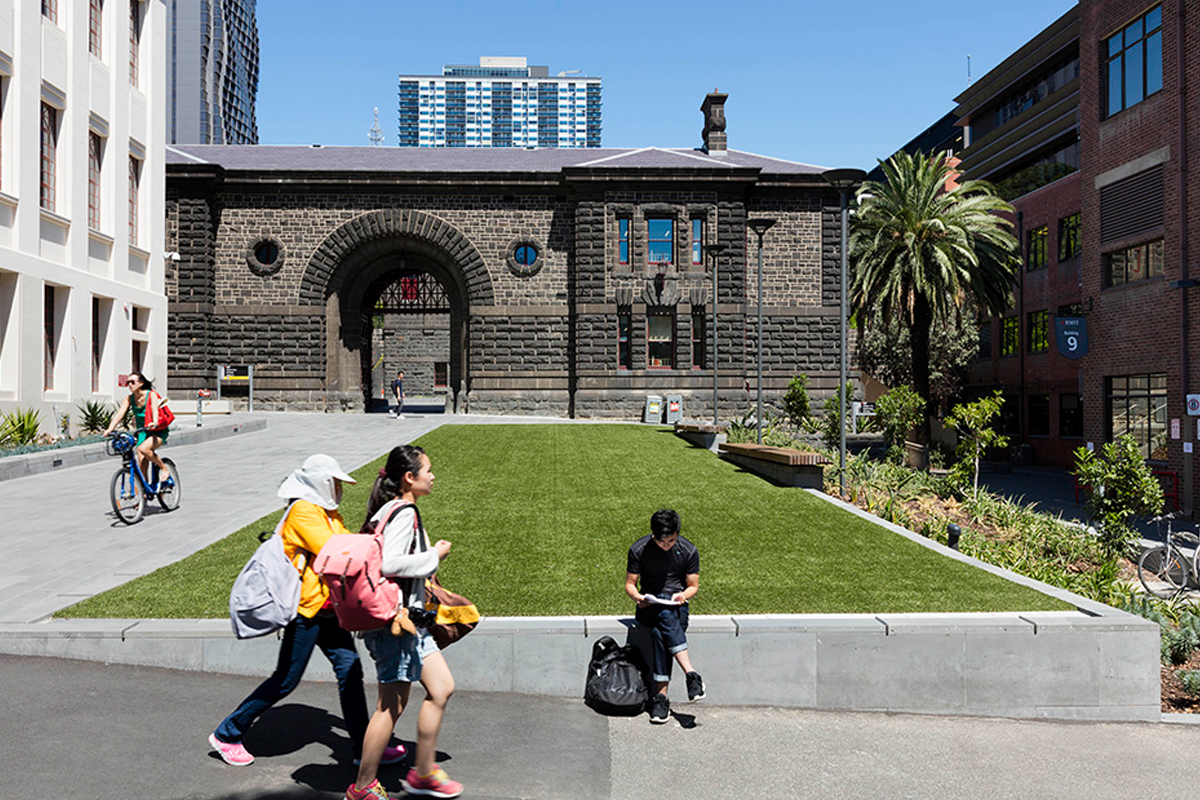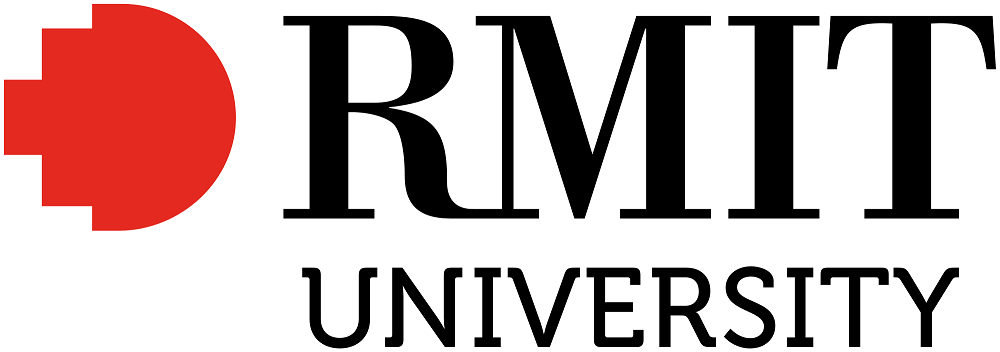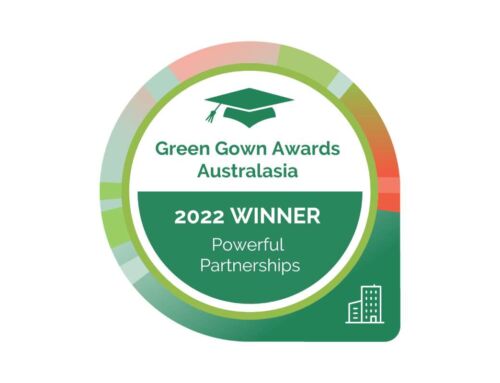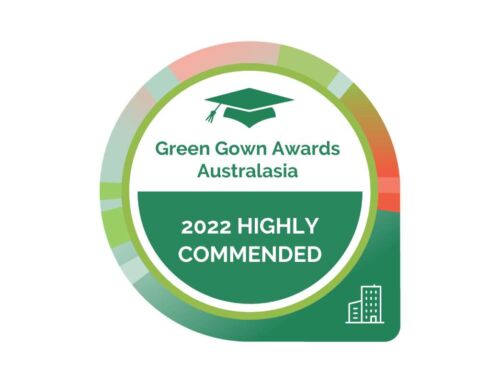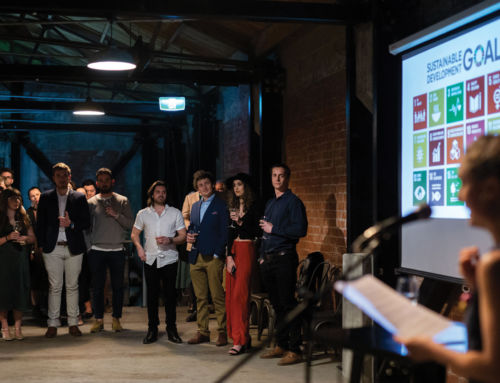Moving the market – a partnership to create fossil-free investments
On 31 March 2021, RMIT University was able to confirm that its equity portfolio had no material exposure to fossil fuels. This quiet achievement was the result of over five years of hard work and a collaborative partnership between the University and its external investment manager Russell Investments.
Globally, the tertiary sector has significant investment portfolios and engaged stakeholders who want to see action on climate change. However, with under $100M in the University’s Philanthropic Fund when the Responsible Investment Principles were developed, RMIT was a relatively small player in the investment space and needed a partner that could help it achieve some bold ambitions.
What has since transpired is an equity portfolio with no material exposure to fossil fuels and strong Environmental, Social and Governance (ESG) principles, that can (and has been) joined or replicated by other like-minded institutions.
A truly committed partnership with industry-leading results focused on addressing the biggest crisis we face today.
> The initiative
RMIT has been on a sustainability journey of transformation for decades and has been able to make a big impact on the areas it directly controls. For example, it had achieved its carbon targets years in advance, undertaking major infrastructure upgrades to achieve the biggest on-site emissions reduction of any Australian university. However, how a university can drive change and influence its supply chain became a challenge for RMIT when a significant student-led campaign kicked off, urging it to divest from fossil fuels.
RMIT doesn’t have the scale of philanthropic funds of other major global institutions, so couldn’t manage its investments directly. Instead, the University invests through a ‘pooled funds’ structure, where investments are not directly held by RMIT. Pooled funds are those where the money of several different types of investors is invested together in products including managed funds and Exchange Traded Funds (ETFs), which are ‘off-the-shelf’ investment products which bundle together numerous holdings. These structures provide the University with access to several different types of asset classes that are normally only available to large-scale investors, which would otherwise be very expensive and difficult for the University to invest in on its own.
When the Sustainability and Finance Teams were investigating the ETF options on the market, they noticed one common issue. So-called ‘low carbon’ products still included holdings in fossil fuel companies due to the screening methodologies applied by those funds. For example, they were often based on the direct emissions of a company, rather than their Scope 3 emissions from the customers using their products. RMIT could see clearly that these products didn’t align with their values or the expectations of their students and staff. It was also difficult to compare products because of the varied methodologies, so the University took a different approach. In 2018, the University worked with independent ESG consultants to develop a set of Responsible Investment Principles that could be approved and enshrined into University policy, and its own methodology for how ESG issues (including fossil fuels) should be screened.
The University’s Responsible Investment Principles require it to invest in accordance with three basic guidelines. Firstly, it must consistently monitor its portfolio in accordance with globally accepted corporate sustainability norms when it comes to human rights, labour, the environment, and anti-corruption (aligned with being a signatory to the UN Global Compact). Secondly, it must minimise activity which contributes to climate change or poor public health, and finally, it requires investment managers it engages to be signatories of the United Nations Principles for Responsible Investment (PRI).
Armed with the RI Principles and the screening methodology, a more well-informed RMIT was then able to approach the market in 2019 and tender for an investment manager with a clear signal to the market about what they required. Following this process, RMIT reengaged its existing investment manager, Russell Investments, but with a new contract in place which outlined requirements and a commitment from both sides to really drive a successful outcome.
The first step was to move to the existing Australian product, Russell Investments Australian Responsible Investment ETF (RARI): a fund that invests in Australian shares and trusts listed on the ASX, weighted towards companies that demonstrate positive ESG characteristics after negatively screening for companies that have significant involvement in a range of activities including fossil fuels, tobacco, gambling and controversial weapons. Russell Investments provided RMIT with a seat on the RARI Responsible Investment Board and have been involved in the ESG direction of the product ever since, helping to improve the screening methodologies. However, no one global product fully matched RMIT’s high ESG screening methodology, so for two years, the University worked with Russell Investments Portfolio Managers in Australia and the Company’s base in Seattle to bring a new global product to the market.
At the end of 2020 RMIT officially moved the remaining funds into the new Russell Investments Sustainable Global Shares ex Fossil Fuels Fund (XFF). XFF is a fund that invests in a broad range of global shares, with a 60% reduced exposure to carbon emissions compared to the MSCI ACWI ex Australia Index. Designed with Russell Investments’ robust decarbonisation strategy, the Fund uses a combination of carbon footprint, fossil fuel reserves, a proprietary green energy ratio and environmental, social and governance (ESG) scoring to determine the companies and their weighting within the Fund. The Fund excludes companies with fossil fuel reserves, as well as companies with significant involvement in fossil fuels. In addition to the decarbonisation strategy, other controversial industries are excluded including tobacco, cluster munitions, anti-personnel mines and nuclear weapons. The Fund’s equity portfolio is positively tilted towards companies with higher than average material ESG scores and will continue to evolve to reflect best practice in sustainable investing. With the stock market reporting a quarter behind, Russell Investments were able to confirm that RMIT’s equity portfolio had no material exposure to fossil fuels on 31 March 2021*. This was a huge achievement and an opportunity for celebration by students, staff and all those who had worked tirelessly to make it happen.
A number of other universities are now following in RMIT’s footsteps and investing in XFF and other ESG focused funds, which makes the work even more worthwhile and will create lasting change. The University and Russell Investments meet quarterly to discuss further improvements and how more positive ESG outcomes can be driven through the investments. Additionally, RMIT has utilised a small component of its philanthropic funding to undertake ‘impact investing’ which is an investment designed to generate measurable, beneficial social or environmental impacts alongside financial returns. In 2019, RMIT began working with Skalata Ventures, a not-for-profit organisation that runs an independently-funded seed program to scale and grow early-stage companies into significant and sustainable businesses. This fund supports future pathways and seed investments for the start-up community such as those which are developed through the RMIT Activator program. Activator is RMIT’s growth engine for entrepreneurship and innovation, working to upskill students on the concept of circular thinking and undertaking collaborations with industry to support the next generation of innovators to create new sustainable businesses, with a particular focus on the circular economy.
* The definition of ‘material’, is defined as a 10% revenue threshold.
> Environmental and social benefits
The indirect social and environmental benefits of the move to these products are difficult to calculate, but the Responsible Investment Association Australasia (RIAA) Responsible Investment Benchmark Report suggests that the Responsible Investment Assets Under Management was $1,280 billion in 2020 which equates to around 40% of the market. Institutions like RMIT that use their financial influence to signal to the market that ‘business as usual’ will no longer be tolerated are creating a significant shift in the way companies behave globally. This then results in businesses that are environmentally and socially progressive being invested in at a greater rate. The fact that these products are now being invested in by other universities demonstrates they are creating sectoral change. The RMIT students are environmentally literate and they expect sustainability to be at the heart of their institution.
> Leadership and engagement
The way the work was implemented was distinctive as there were very few examples globally about how universities could divest from fossil fuels and even fewer small funds that indirectly invested through ETFs. RMIT instead followed examples of charities and faith groups who set out their values first, in the form of the RI Principles and then approached the market to find a suitable product that could align. One interesting example from the stakeholder engagement work to develop the principles was that alcohol was an excepted norm at RMIT, served at functions and events on campus, so rather than having an explicit screen for alcohol, a clause was written about health and wellbeing that would allow the University to evolve the ESG positive and negative screens without the need to change policy.
> Significance to the sector
RMIT’s work in the investment space is an Australian-first for the sector and is certainly leading in the top cohort of universities globally. The distinctiveness of this work comes from being a small fish in the investment world, but still leveraging the University’s influence to make change. Many universities in Australia made public divestment commitments when the 350.org student campaign kicked off in around 2017, but to date, most have not publically disclosed that their commitments have been met. RMIT has demonstrated it can be done, often with much less to invest than other institutions – we remain committed to not only sharing how we undertook the work, but also acting as a beacon in opposition to those who say it can’t be done.
> Wider societal impact
Removing fossil fuels from investments and other negative screens such as tobacco or weaponry, while positively screening for beneficial sustainability outcomes has a significant impact on climate change, public health and wellbeing, armed conflicts and the uptake of renewables. If educational institutions don’t stand up and use their influence to make change it is a signal to industry, community and our students that issues such as climate change don’t matter or aren’t actionable.
> Learner/Graduate employer impact
RMIT is committed to creating graduates that are ready for life and work with graduate attributes of environmentally responsible and culturally & socially aware. To achieve this, the University must walk the talk on sustainability, and deliver lectures and course material on these issues, particularly for our business and finance students, so they can go into industry knowing that responsible investment is achievable. If RMIT can demonstrate real commitment and progress in sustainability through credible practical initiatives, this improves the ethics and reputation of the University. The engagement with our students on this issue over the years has improved their capabilities; they have gone from campaigners to engaged and involved stakeholders, they don’t need to shout from the rooftops, they come in and sit around the table.

